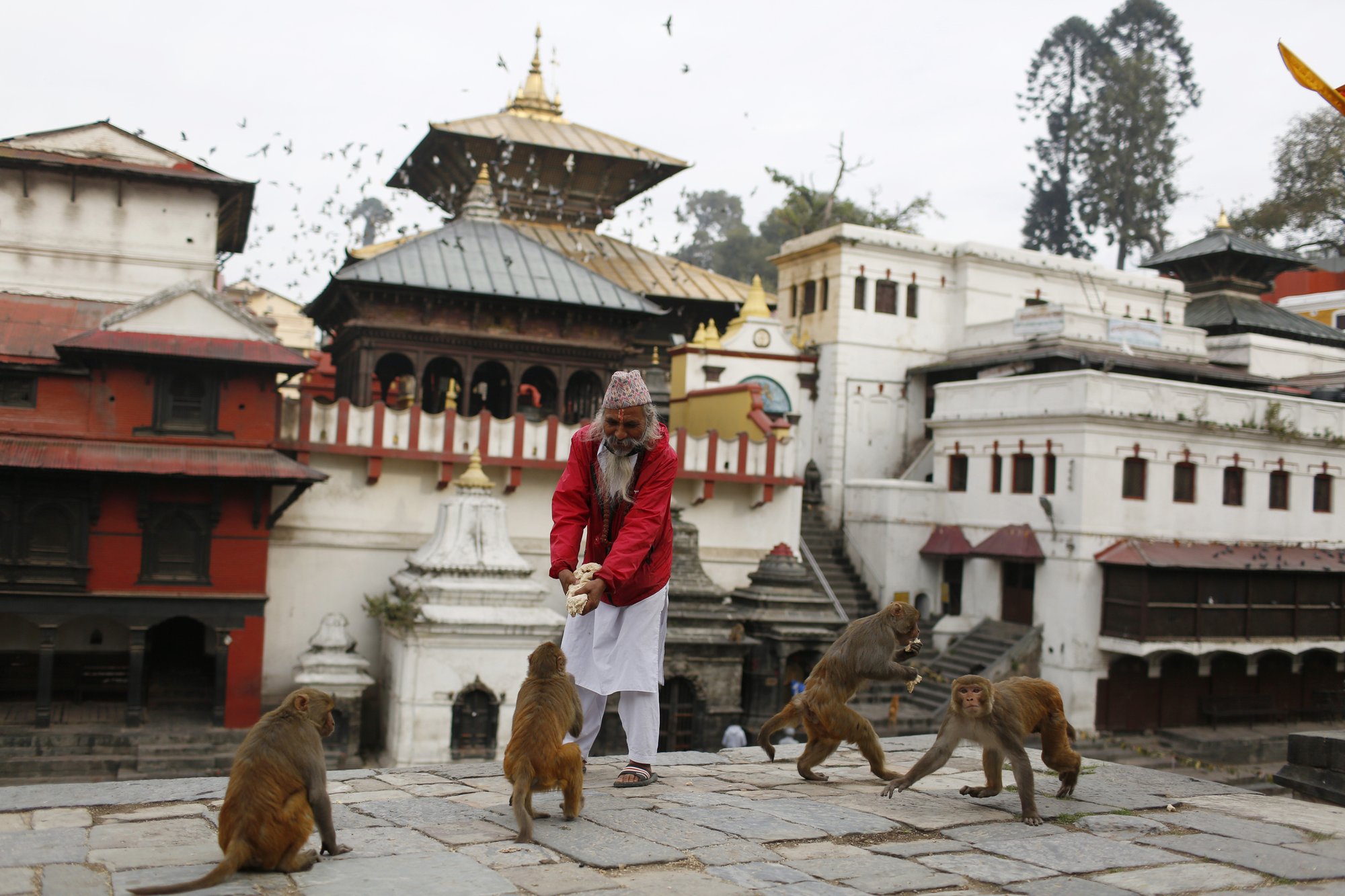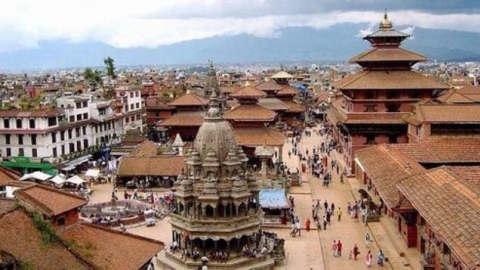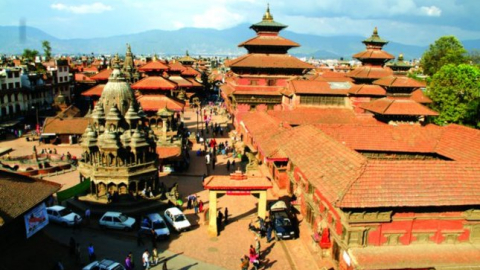The Pashupatinath Temple in Kathmandu, Nepal, is considered the holiest Hindu temple, home to hundreds of monkeys, cows, and pigeons. Before the Covid-19 pandemic, these animals were cared for by thousands of devotees and visitors.
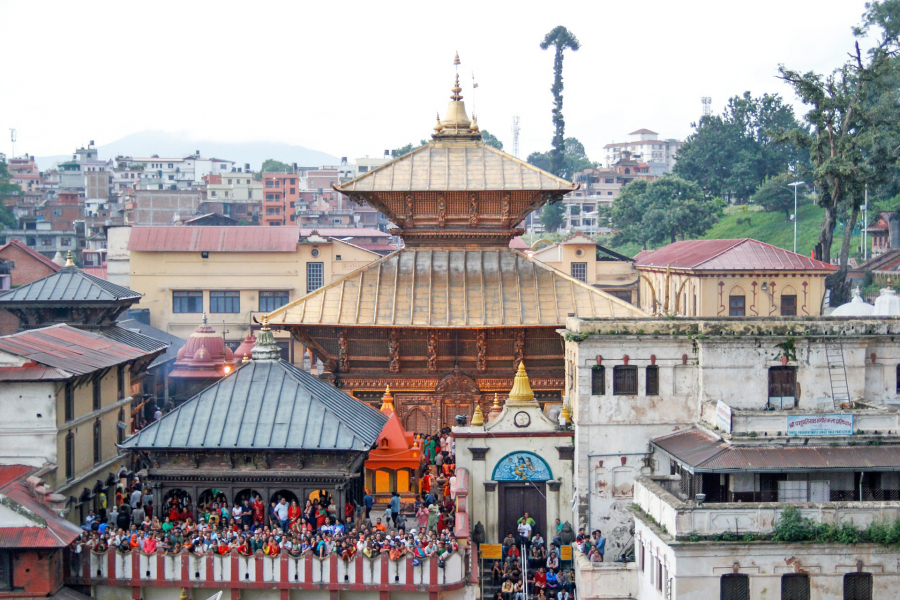
The Pashupatinath Temple is a popular destination attracting thousands of devotees and tourists.
Herds of cattle gather on the road leading to the temple and along the Bagmati River, while monkeys roam freely around the nearby hills. Cows are sacred animals and revered by Hindus, while monkeys are believed to be descendants of the ape-headed, human-bodied god Hanuman. However, since March 24th, Nepal has imposed a lockdown to prevent the spread of Covid-19, prohibiting people from leaving their homes, and forcing the Pashupatinath temple to close. This has put the animals around the temple at risk of starvation.
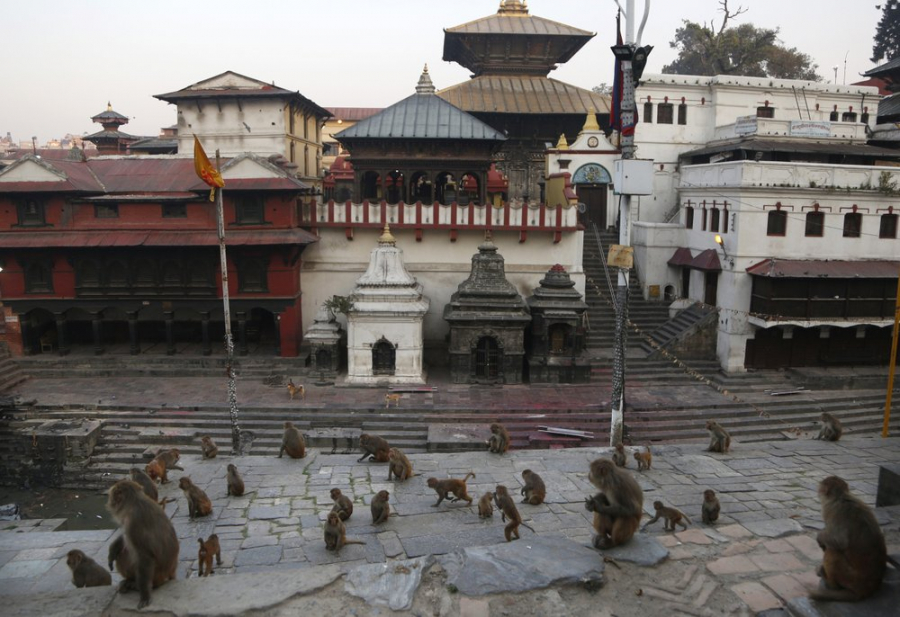
Monkeys wait to be fed at Pashupatinath Temple.
In response to this situation, guards, staff, and volunteers visit the temple twice a day, in the morning and evening, to feed and care for the animals. Dried corn is scattered on the riverbank for the pigeons, and the cows receive a ration of dough made from grains. Hundreds of monkeys line up to receive food from volunteers wearing masks and rubber gloves.
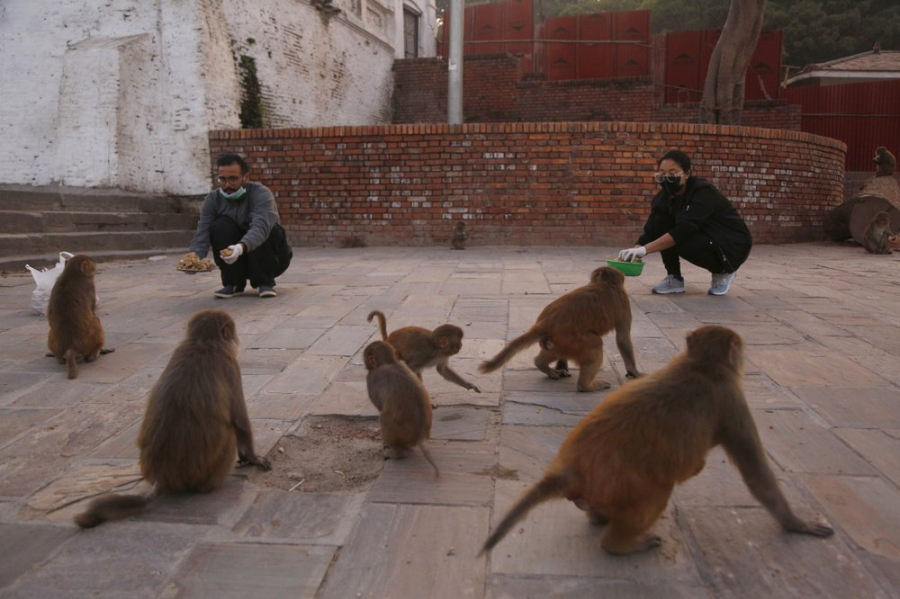
Volunteers feed monkeys at Pashupatinath Temple.
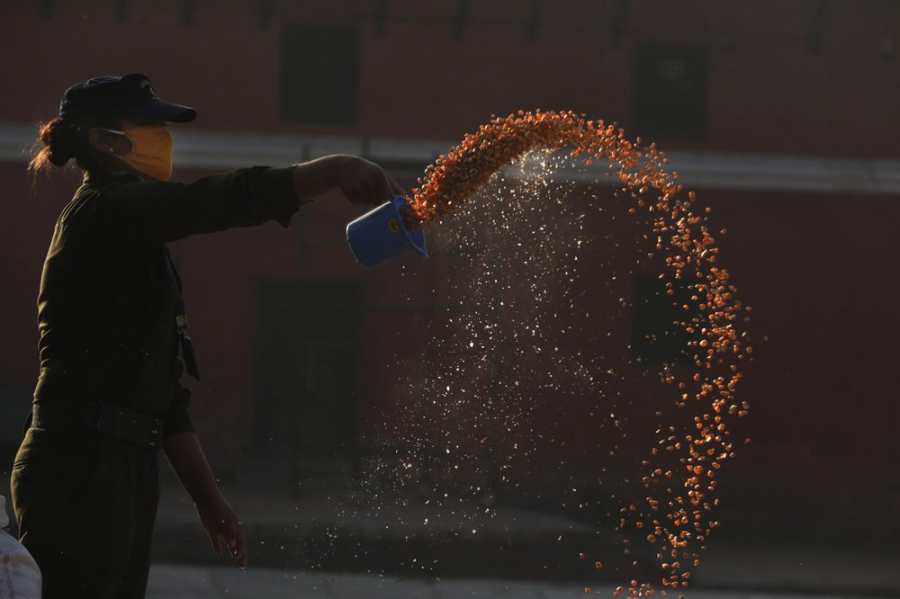
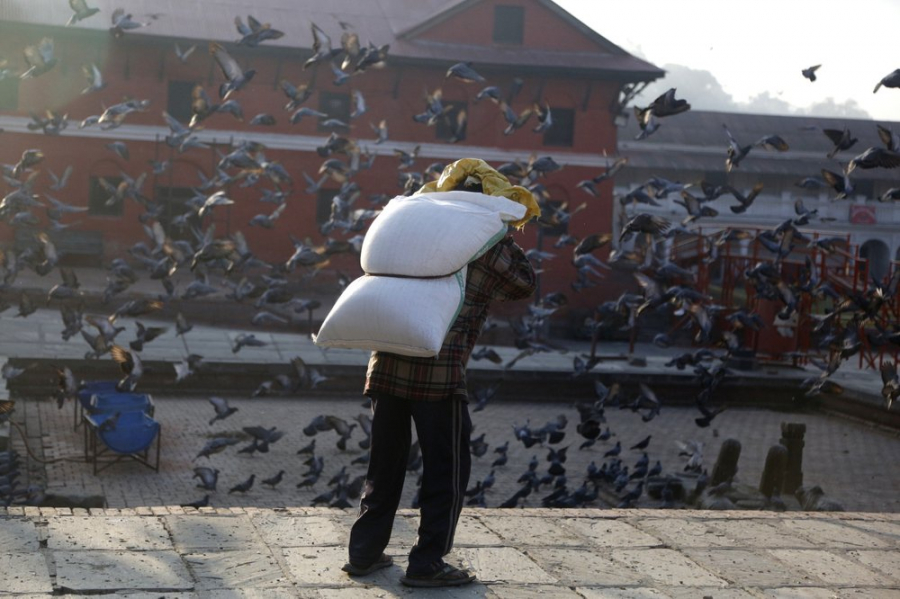
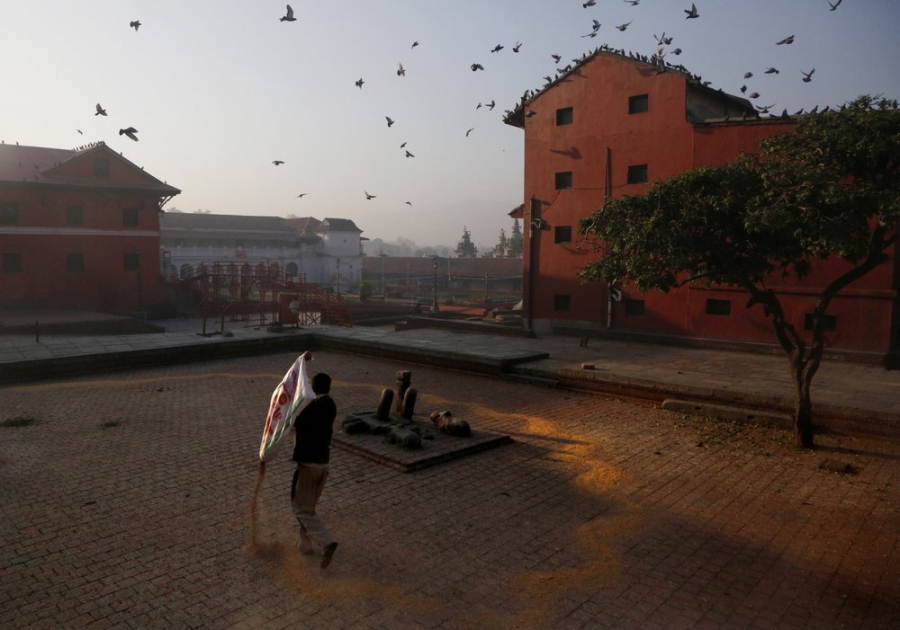
Volunteers feed the pigeons.
The monkeys did not attack the volunteers, but occasionally snatched food from them. "We are trying to ensure the animals are not hungry and are well cared for," said Pradeep Dhakal, an official in charge of the temple and surrounding area.
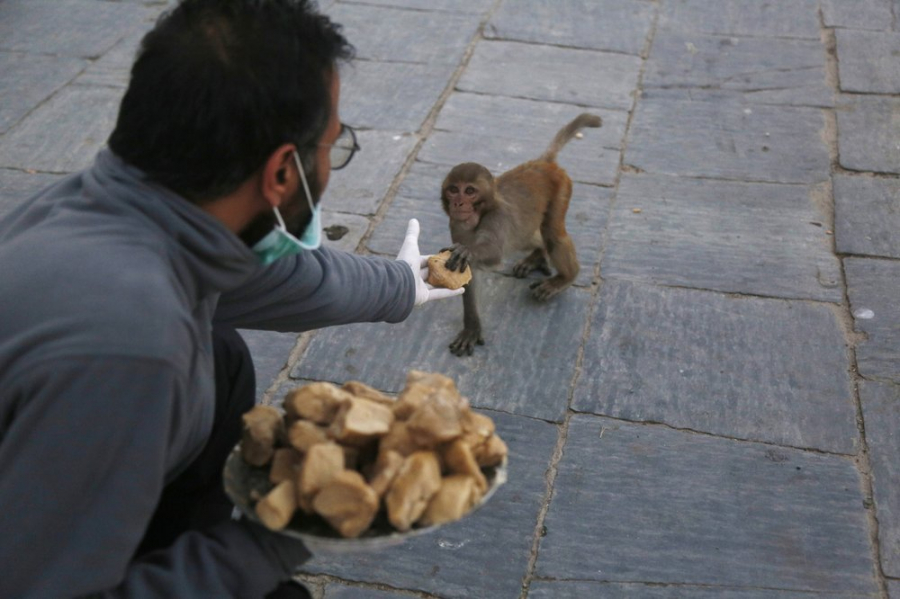
Volunteers feed monkeys at Pashupatinath Temple.
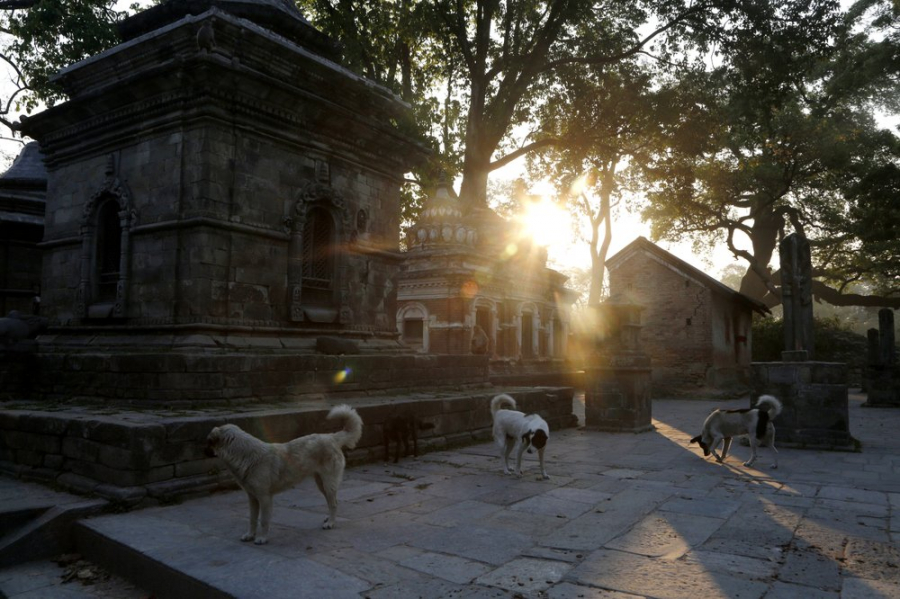
Stray dogs roam around the temple.
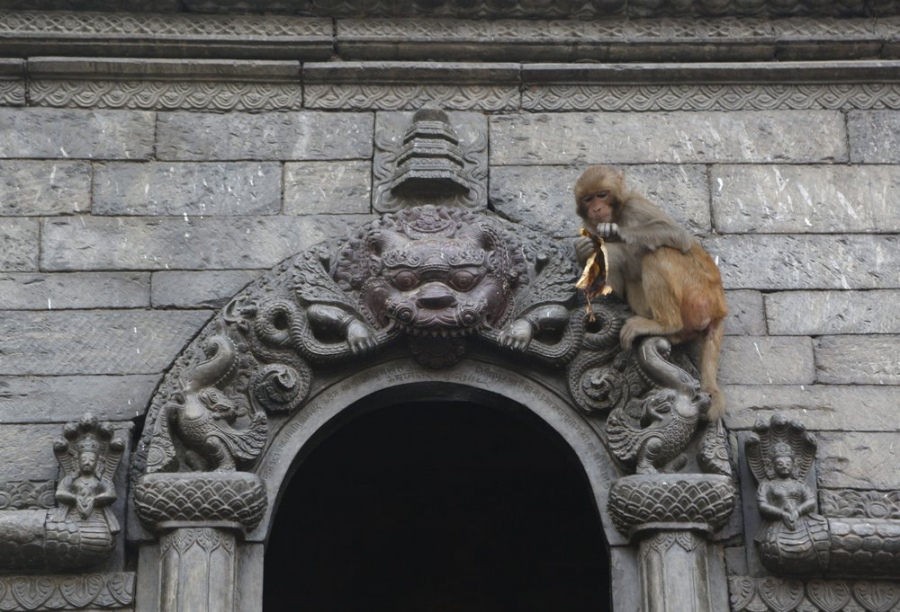

 VI
VI EN
EN



